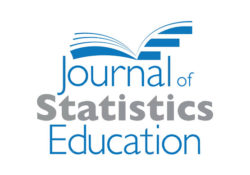eric.ed.gov har udgivet: Case study research suggests that NLP [neuro-linguistic programming] influencing strategies benefit teacher effectiveness. Maths pedagogy involving higher-order questioning, challenge, problem solving and collaborative working may be a way of improving attainment in adult numeracy learning, however, such strategies may be less effective if the relationship between teacher and learner does not reflect sensitivity to attitudes, beliefs and emotions (areas in which advocates of NLP claim effectiveness). The present study investigated these claims and the combined effect of such approaches using a pre- and post-treatment test design with 173 adult numeracy learners. Teachers were randomly allocated to three conditions, these were: (1) teachers given no training (control condition); (2) teachers trained in innovative maths pedagogy (including more frequent higher-order questioning, challenge, problem solving and collaborative learning); and (3)… Continue Reading →
Like this:
Like Loading...
eric.ed.gov har udgivet: With a national need to improve Science, Technology, Engineering and Mathematics Education (STEM), elementary pre-service teachers must be provided with ample opportunities to increase their own knowledge and confidence in STEM disciplines. This article describes a Math Block experience developed for a special population of non-traditional students in an Early Childhood Unified program. The block blended a math content course with a math methods course and was co-taught by a mathematician and teacher educator. Link til kilde
Like this:
Like Loading...
tandfonline.com har udgivet en rapport under søgningen “Teacher Education Mathematics”: Abstract Abstract We designed a sequence of courses for the DataCamp online learning platform that approximates the content of a typical introductory statistics course. We discuss the design and implementation of these courses and illustrate how they can be successfully integrated into a brick-and-mortar class. We reflect on the process of creating content for online consumers, ruminate on the pedagogical considerations we faced, and describe an R package for statistical inference that became a by-product of this development process. We discuss the pros and cons of creating the course sequence and express our view that some aspects were particularly problematic. The issues raised should be relevant to nearly all statistics instructors. Supplementary materials for this article are available online. Link… Continue Reading →
Like this:
Like Loading...
sciencedirect.com har udgivet: Highlights • Supportive cycles of relational and practical learning experiences are needed for deepening assessment learning. • Assessment approaches shifted to research-based practices via coursework/practicum cycles and peer/mentor feedback. • Findings confirmed Fink’s (2003) findings that significant learning involves interactive and non-hierarchical experiences. • Data suggest teacher candidates need more explicit attention on learning how to learn. Abstract Teacher candidates are required to learn substantial fundamental and practical knowledge often within short, fast-paced initial teacher education (ITE) programs. This study examined assessment education through a case study of 35 teacher candidates enrolled in an assessment/evaluation concentration at one Canadian institution. Using a slow movement framework with Fink’s (2013) significant learning experiences taxonomy, pedagogies were analyzed that provoked slow and significant learning. Findings from multiple data sources revealed… Continue Reading →
Like this:
Like Loading...
sciencedirect.com har udgivet: Highlights • Three technologies were used to develop three components of noticing expertise in mathematics pedagogy courses. • Three-point Framework including Key point, Difficult point, and Critical point was incorporated into technology intervention. • Effects of using Three-point framework along with technology on development of noticing expertise were assessed. • The goal of these interventions was to incorporate noticing expertise as a regular professional practice. Abstract This study investigated effects of employing the Three-point framework (Key Point, Difficult Point, Critical Point) and three technology-aided interventions (online discussions, clinical interviews, and graphic lesson plan construction) on developing preservice teachers’ noticing skills in elementary mathematics pedagogy courses. Pre- and post-intervention assessments revealed significant improvement in the treatment group’s scores, and two case studies illustrated how the interventions can help… Continue Reading →
Like this:
Like Loading...
